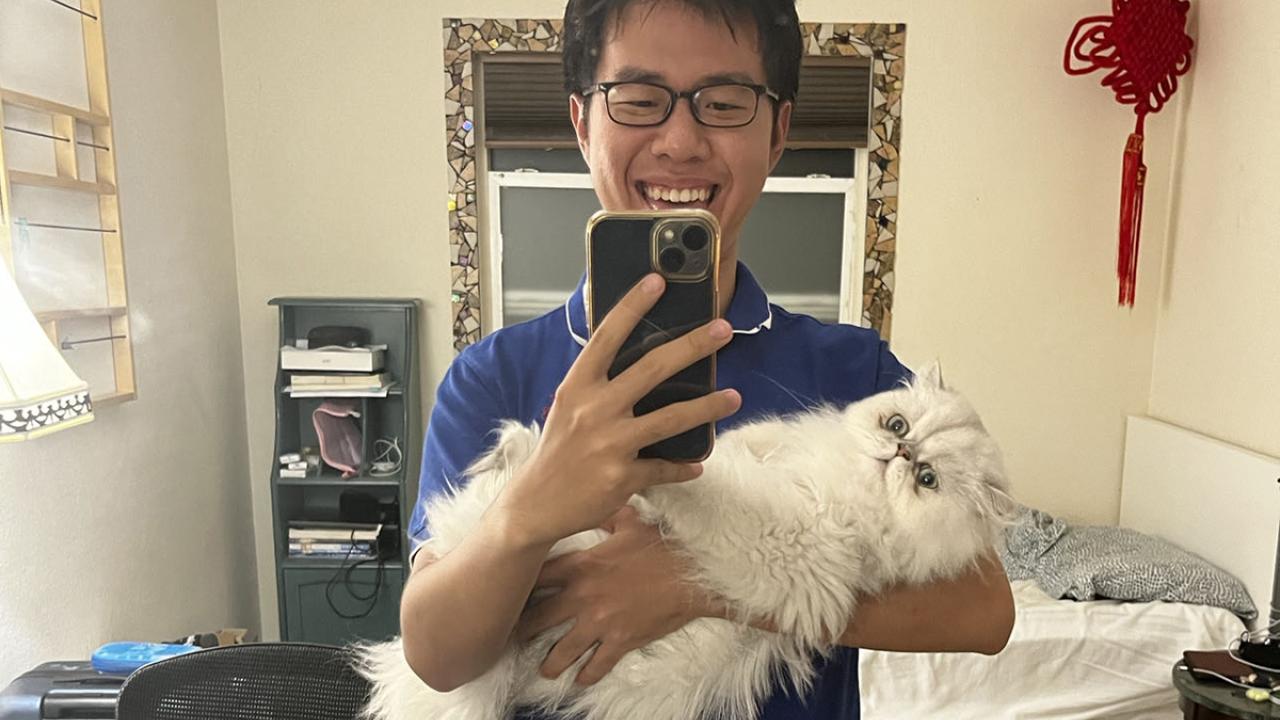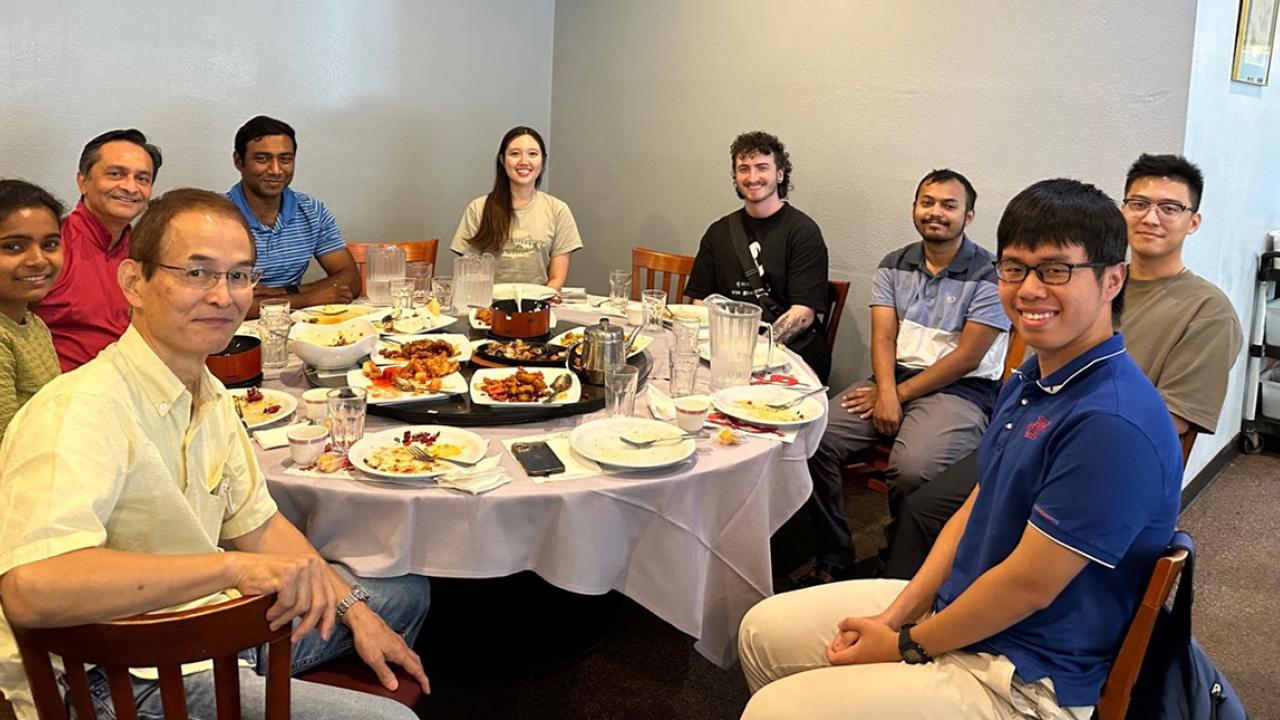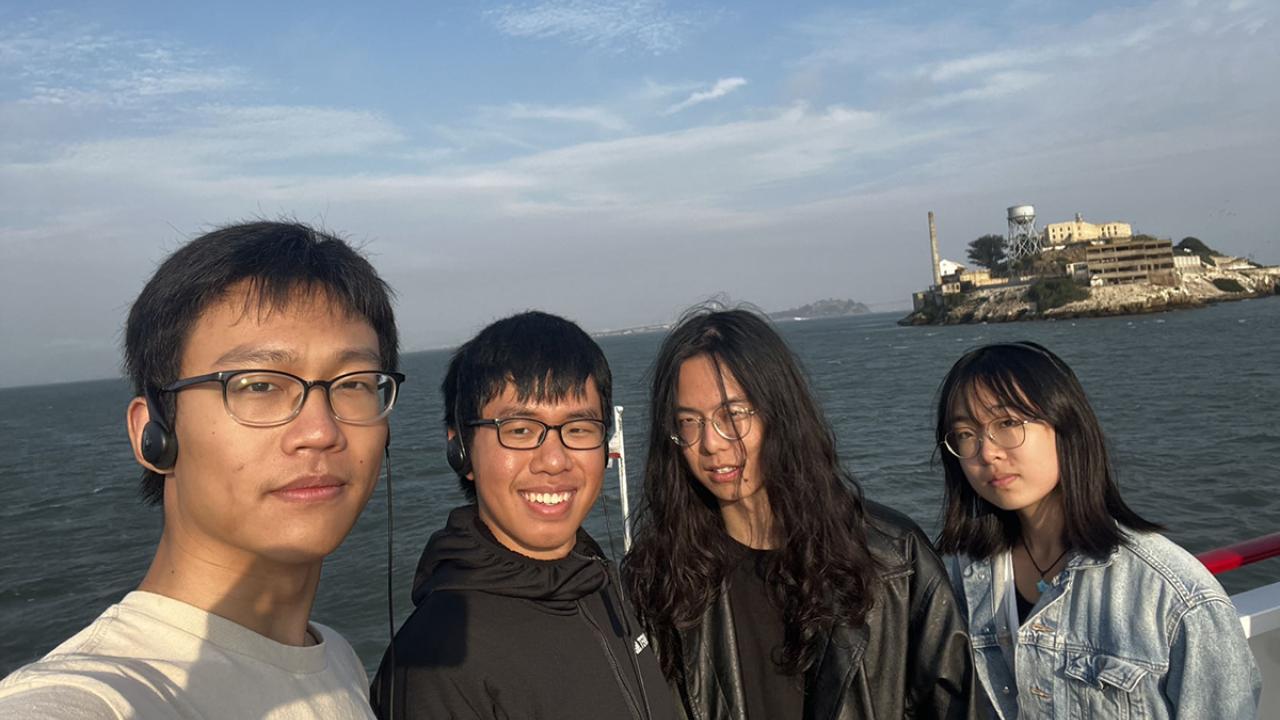
An Impactful Summer at UC Davis
My Reflection on the GREAT Summer Research Program
My name is Bai (Bryan) Yiyang. I am an applied physics and electronic information engineering student and I recently completed the GREAT Summer Research Program at UC Davis.
The application for the Global Research Experience in Advanced Technologies (GREAT) Program typically opens the semester before winter break. That winter, I was busy preparing for the TOEFL exam. Fortunately, the application materials required for the GREAT program didn't demand extensive preparation, so when I received the offer from the GREAT program, I was overjoyed and immediately accepted this valuable opportunity. I was assigned to Professor Saif Islam's group in the Electrical and Computer Engineering Department— my first choice.
On July 4th, I arrived at SFO Airport and took a pre-booked shuttle to my homestay in Davis, California. That day, I met my two roommates: another GREAT program student and an American student. In the evening, we went together to watch the lively fireworks for Independence Day.
Home Away from Home
My Davis homestay was extremely comfortable. The house was on the outskirts of Davis, and because I had chosen the meal plan that included breakfast and dinner in Davis housing, I didn't have to cook for myself. Breakfast and dinner were taken care of at home, while I usually went to on-campus or off-campus restaurants for lunch. For breakfast, my homestay family would prepare cereal, milk, bread, and other items in the fridge. Then I would ride my bike to school. After school, they would cook a hot dinner for us. My host family’s background was Chilean, so their meals were quite different from typical Western cuisine. At dinner, we would all gather around the dining table, enjoying the food and having lively conversations.
The homestay in Davis Housing cost around $1000 per month, which was more expensive compared to renting a place on my own, especially with roommates. However, it did provide a unique and flavorful living experience.

Settling in with My Lab
Professor Islam's research group was surprisingly small: besides the undergraduate students who didn't have official positions, there was only one postdoctoral fellow named Amita and two doctoral students. Amita was assigned to be my mentor. The group would occasionally have meals together, and we had a large group meeting every Thursday. During the meeting, each person would present their work for the week, and afterward, everyone would share their opinions.
Professor Islam was very gentle and humorous, but he also possessed the ability to manage the overall situation. In the first group meeting, he candidly expressed his hope that we would cherish our time in the group and not waste our parents' money. However, he never got angry at anyone for slacking off, but rather frequently asked about our personal lives and recommended many good places near the campus.
During the GREAT Summer Research Program, I met with Amita approximately every three days. I would organize the data I collected during that period, and she would provide suggestions for my next steps. Amita was exceptionally capable, considerate and patient. During each small presentation, she would first inquire about my well-being, and she was more eager to start discussing the problems than I was. She consistently guided the direction of my work. No matter how detailed my question, she patiently answered it for me.
Looking back, I feel that I have grown a lot.
Professor Islam's research group is called Inano. It is a highly diverse group: the professor himself completed his undergraduate studies in Turkey, there is also a visiting professor from Japan, postdoctoral fellow Amita is from India, doctoral student Lisa is American, another doctoral student, Ahasan, is from Bangladesh (if I remember correctly) and the rest of the undergraduate students are American, and I am Chinese. So, when I joined, I didn't feel any sense of alienation and felt very comfortable. At first, I was not accustomed to everyone's accents: except for a few Americans, I had to concentrate fully to catch one or two words when others were speaking and then I had to guess the meaning from it. Fortunately, when I asked them to repeat, they didn't mind at all. Luckily, after about a week, I completely got used to these accents.
Application Prep
The GREAT Program scheduled two classes for us each week, covering topics related to applying to American universities and academic life. We completed assignments outside of class. In one of the sessions, a college counselor taught us how to write a Statement of Purpose (SoP) and Personal Statement (PS). The homework after the class was to write our own SoP and PS, and she would help us revise them. This was very helpful for students who planned to apply to U.S. universities immediately after completing the GREAT Program.

Exploring Davis and Beyond
During my free time, I also found some entertainment in this foreign land. Every Saturday morning at 10 a.m., a group of soccer enthusiasts would gather at the open soccer field on campus to play. I joined them a few times after waking up early on weekends. On a few other weekends, my classmates from USTC and I, along with several new friends we made in the GREAT Program, would go on trips. One time, we took a taxi to the IMAX theater in Sacramento to watch Christopher Nolan's new film, Oppenheimer (which hadn't been released in mainland China at that time). Then we found a shooting range and tried our hand at shooting. Another time, we spent the morning exploring Stanford University and then toured San Francisco's harbor in the afternoon, even walking on the Golden Gate Bridge for a while.
'No Pain, No Gain'
The highlight of the GREAT Program was academic research. In the first week, Amita asked me to read a textbook on semiconductor devices to enhance my theoretical knowledge. In the following weeks, I gradually familiarized myself with the software we used, SILVACO Atlas. Afterward, we started working on calibration for practical problems.
During my two months at UC Davis, we primarily focused on adjusting the calibration model. Although the curves generated by our model roughly followed the expected trend, they consistently deviated significantly from the experimental results, particularly in critical slopes. We practically tried every available physical model in SILVACO Atlas. However, by the last two weeks of the GREAT program, the results were still unsatisfactory. I often stayed up late conducting simulations. In one of the progress reports, Amita comforted me, saying that scientific research is like this, and I began to doubt if I was suitable for research. Fortunately, a breakthrough eventually came. I accidentally realized the problem and obtained a satisfactory calibration curve before returning to China.
I experienced the distinct lifestyle and pace differences between the United States and China, as well as the academic atmosphere and student life at an American university.
After returning to China, I continued my work, which focused on simulations and didn't require experimental operations. The lab provided a remote desktop, allowing me to use SILVACO in China. Amita and I scheduled a time to meet weekly via Zoom. Just like before, I presented the newly collected data, and she provided suggestions for next steps. This continued for a semester. We gradually fixed several other parameters in the model that didn't match and used this model to simulate a device of another type of doping, verifying one of Amita's hypotheses. That winter break, we organized the results and submitted the paper to the IEEE Device Research Conference. In April, we received the good news of its acceptance.
Looking back, I feel that I have grown a lot. Academically, I delved into the research field of integrated circuit devices, experienced the practical application of semiconductor device physics theory and mastered a new simulation tool. I experienced the distinct lifestyle and pace differences between the United States and China, as well as the academic atmosphere and student life at an American university. And I made friends with people from various countries.
The Davis summer research program was a new challenge for me, and there were many difficulties to overcome. I had to adjust to the time difference, become familiar with entirely new food and daily routines and gradually adapt to thinking and communicating in English. What’s more, I needed to face the academic setbacks while waiting for an unknown turning point in the midst of repeated failures. Reflecting on the end of this experience, I would like to quote a saying my middle school teacher taught me: "No pain, no gain."
Thank you to the GREAT Program staff, USTC’s International Cooperation Department, Prof. Islam and the Inano group, my host family and friends in Davis for accompanying me through this wonderful experience.
